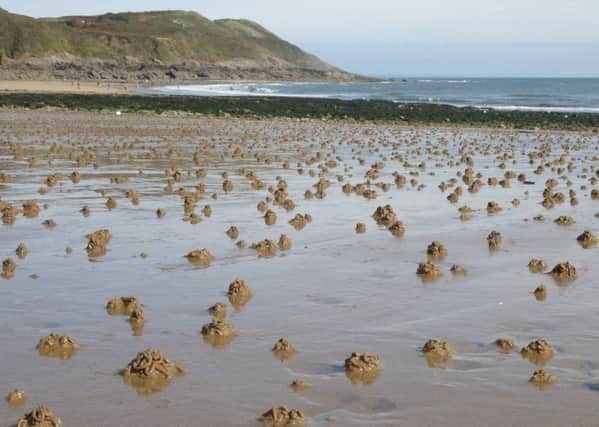Portsmouth scientists need your help to study worm sex lives


The team is studying lugworms, which are a major source of food for birds and fish.
The animals spend their lives burrowed deep in sand, meaning opportunities to find the perfect mate are limited.
Advertisement
Hide AdAdvertisement
Hide AdInstead, the males release sperm which collects in ‘puddles’ on the surface of the sand, then when the tide comes in the sperm is washed down in to the burrows of females and fertilises their eggs.
Very little is known about the process of fertilisation though and scientists are calling on members of the public to join their project - dubbed ‘Spermwatch’.
The project is part of the wider conservation project Capturing our Coast, a partnership between different universities, the Marine Conservation Society, the Earthwatch Institute, the Marine Biological Association and the Scottish Association of Marine Science.
Dr Katrin Bohn, Capturing Our Coast Project Officer at the Institute of Marine Sciences, University of Portsmouth, said: ‘Lugworms are fascinating.
Advertisement
Hide AdAdvertisement
Hide Ad‘The entire population at a specific location reproduces for just a few days every year and only when certain environmental conditions are ideal.
‘We want to know what those conditions are and also understand how climate change, for example, will affect that.
‘By going out for a walk on any beach across the UK, members of the public can help us in answering those questions.’
Dr Gordon Watson, principal lecturer at the Institute of Marine Sciences, said: ‘This is a great way for people to get involved in scientific research.
Advertisement
Hide AdAdvertisement
Hide Ad‘It would be virtually impossible to collect these data without public involvement, so every bit of data the public collects is vital.’
Instruction books can be downloaded from the Capturing Our Coast website.
Picture credit: University of Portsmouth